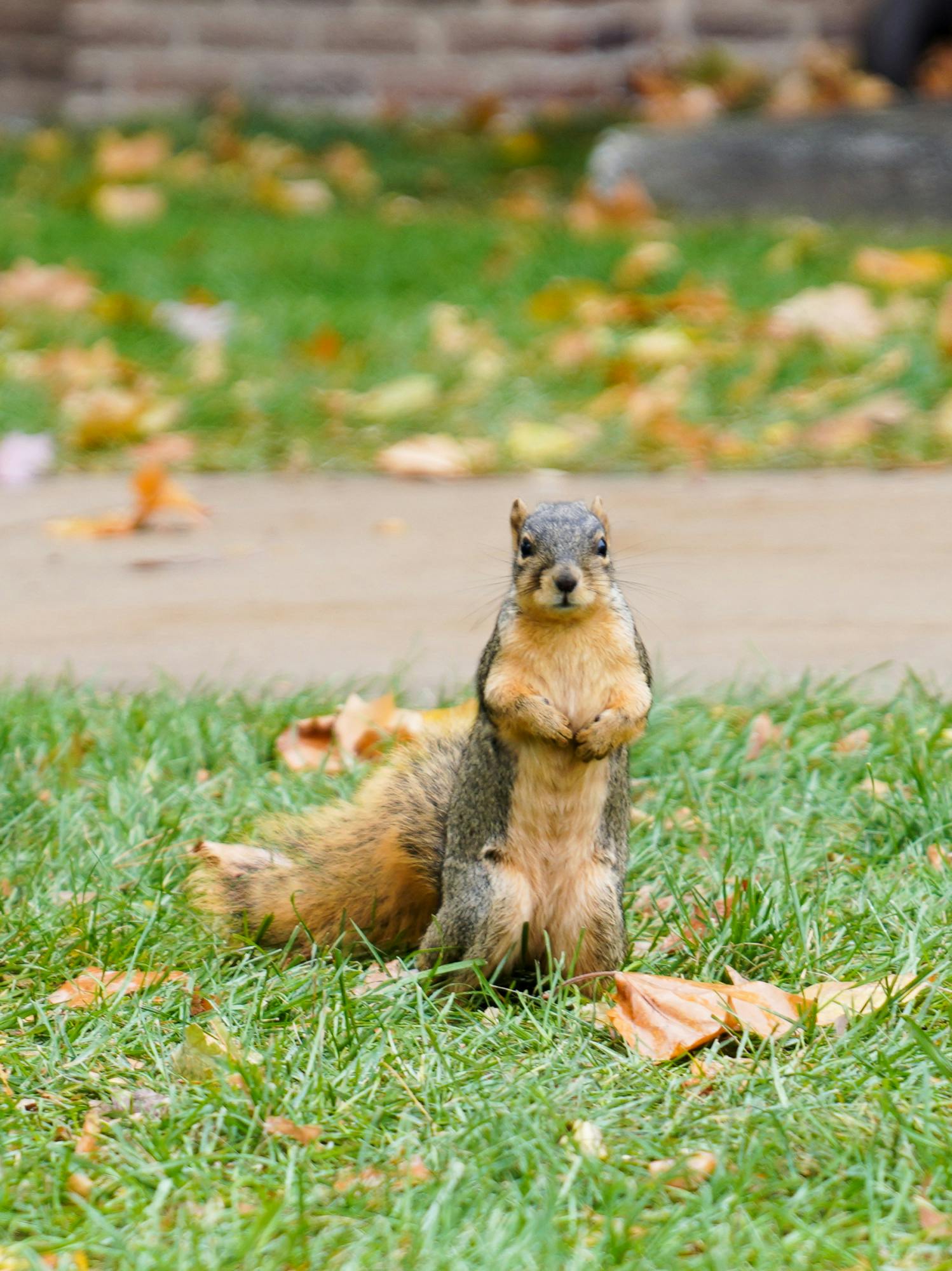It’s no secret that Michigan State University is overrun with squirrels.
If you look to the left, to the right, up at the trees and down at your feet, a squirrel will likely be spotted. Hosting six types of squirrel species, MSU is considered to have one of the largeest and most diverse squirrel populations in the nation – as most campuses have only one or two types.
The question remains, however: Should we be welcoming our furry friends, or should we fear their overconfidence?
MSU research scientist Adia Sovie, who completed her dissertation on gray and fox squirrel interactions and behavior, said the animals have a knack for adapting to their environment. For a campus squirrel's case, they get used to feeling very safe, very fast.
“It’s very common on places like campuses, where they are not hunted, and there’s not any real predators and they get fed,” Sovie said.
As squirrels begin to lose fear of people, they begin to associate them with food, which draws them to approach people – such as MSU students.
Many students associate rodents, even seemingly friendly campus squirrels, with rabies and other diseases. Although squirrels don’t pose a special concern for disease, any wild animal can carry rabies, Sovie said.
“If you get bitten by a flea that was on one or something, it can transmit different diseases and through their saliva,” Sovie said. “If they bite you, you can get infected also. Their teeth are incredibly strong and sharp."
MSU’s campus is home to six different types of squirrel species: eastern gray squirrel, fox squirrel, American red squirrel, southern flying squirrel, thirteen-lined ground squirrel, groundhog and eastern chipmunk.
The eastern gray squirrels are more aggressive and bolder than any other type of squirrel, Sovie said.
“Ones that you see begging or approaching people on campus are probably the gray squirrels,” Sovie said.
Yet, she said it is important we share our campus with them.
“Squirrels are a great ambassador critter for urban wildlife,” Sovie said. “They're incredibly versatile and they're one of the only species that can really integrate in a human landscape. So, for most people, it's the only wildlife they see on their given day-to-day.”
This unique role MSU's squirrels play has led to some students creating fan pages for them. The Instagram page @qualitysquirrelsofmsu documents the creatures in East Lansing and shares students' fandom for them.
Students are welcome to send in a picture or a video of squirrels from campus to have it highlighted on the page. However, the administrators said they get about five submissions a day, so they are not able to post all of them.
Human biology senior Sierra Cimafranca is not so keen on seeing the squirrels on a daily basis.
“I am not a fan of how friendly they are,” Cimafranca said. “I feel like they could literally crawl up my leg at any moment.”
Cimafranca noted one morning when she was leaving her house that helped cement her fear.
“At my house, we have a porch that is screened-in, and I parked my car back there,” Cimafranca said. “There’s been a squirrel stuck in the sun porch, and when I walked out, it freaked out and came really close to me.”
She still likes to admire the squirrels from the comfort of her home. When a squirrel is spotted outside, Cimafranca will look through the window where she knows she is safe and not submitted to potentially being attacked.
Support student media!
Please consider donating to The State News and help fund the future of journalism.
No matter what opinion you have of the squirrels' confidence and comfortability, their benefits to East Lansing and MSU are undeniable, Sovie said.
“It's really quite wonderful that we have them on campus, and we can enjoy them,” Sovie said. “We just need to take responsibility and make sure that we can keep sharing our campus with them by not feeding them and keeping our distance and trying to keep the wildlife wild.”
Discussion
Share and discuss “MSU squirrels: To love or to hate? Students, fan pages and researchers weigh in” on social media.







